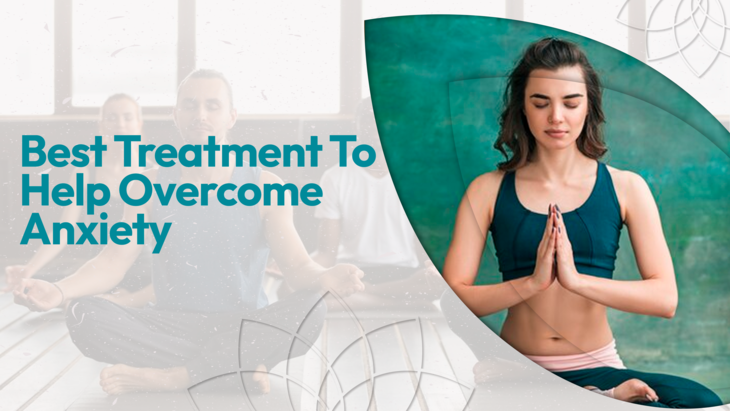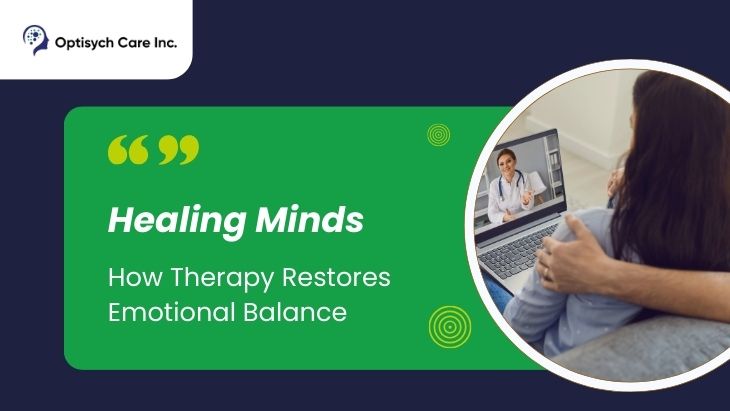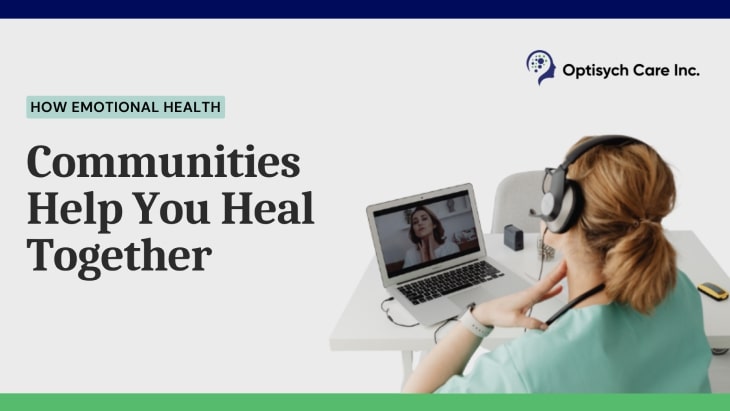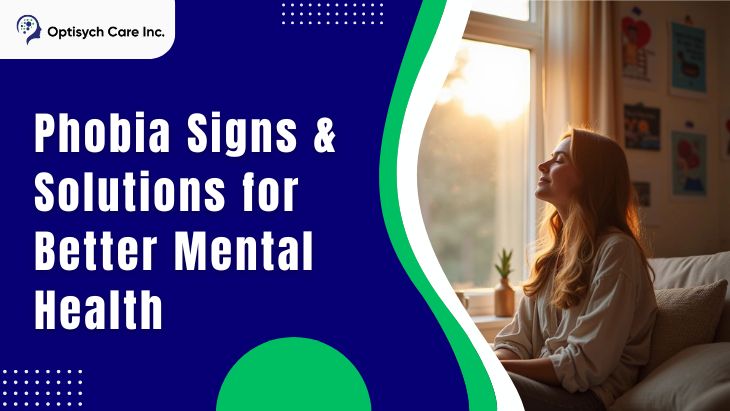Feeling overwhelmed, nervous, or constantly on edge? You're not alone. Anxiety touches many lives, making everyday tasks seem insurmountable. But there is hope. With the right treatments, you can manage and even overcome anxiety. This guide is designed to lead you through a compassionate and emotional journey toward finding inner peace. Together, we’ll explore the best treatments to help you reclaim your life from anxiety’s grip.
Understanding Anxiety: Recognizing The Signs And Symptoms
Before diving into treatments, it’s essential to understand what anxiety is. Anxiety isn't just feeling stressed or worried. It’s a persistent state of dread that can affect every aspect of your life. Symptoms include:
-
Constant worry or fear
-
Irritability
-
Fatigue
-
Difficulty concentrating
-
Physical symptoms like headaches, stomachaches, or a racing heart
Acknowledging these symptoms is the first step toward healing. Remember, there’s no shame in experiencing anxiety. It’s a part of being human, and seeking help is a sign of strength.
Seeking Professional Help: Therapy and Counseling
One of the most effective ways to combat anxiety is through professional help. Online Therapists and counselors are trained to provide the support and tools needed to manage anxiety. There are several types of therapy that have proven effective:
Cognitive Behavioral Therapy (CBT)
CBT is a powerful tool in treating anxiety. This therapy focuses on identifying and changing negative thought patterns. By understanding the connection between your thoughts, feelings, and behaviors, you can learn to develop healthier coping mechanisms.
Exposure Therapy
For those with specific phobias or PTSD, exposure therapy can be incredibly beneficial. This method involves gradually exposing you to the source of your anxiety in a controlled environment, helping you build resilience and reduce fear over time.
Acceptance And Commitment Therapy (ACT)
ACT encourages you to accept your thoughts and feelings rather than fighting them. By committing to actions that align with your values, you can find a greater sense of purpose and reduce the impact of anxiety on your life.
Medication: Finding the Right Balance
While therapy is fundamental, medication can also play a crucial role in managing anxiety. It's important to remember that medication isn’t a cure but a tool to help you regain balance. Common types of medication include:
Antidepressants
Selective serotonin reuptake inhibitors (SSRIs) and serotonin-norepinephrine reuptake inhibitors (SNRIs) are often prescribed to help regulate mood and reduce anxiety symptoms.
Benzodiazepines
For short-term relief of severe anxiety, benzodiazepines can be effective. However, due to their potential for dependency, they are usually prescribed for limited periods.
Beta-Blockers
Although typically used for heart conditions, beta-blockers can help manage physical symptoms of anxiety and Stress Management Techniques , such as rapid heart rate and trembling. Working closely with a healthcare provider ensures that you find the right medication and dosage to support your journey.
Lifestyle Changes: Creating a Foundation for Peace
Beyond therapy and medication, lifestyle changes are vital in overcoming anxiety. Small, consistent adjustments can make a significant difference. Here are some key areas to focus on:
Exercise
Regular physical activity is a natural anxiety reducer. Exercise releases endorphins, the body’s feel-good hormones, which help to lift your mood and reduce stress. Even a daily walk can have profound effects on your mental health.
Diet
Nutrition plays a significant role in how we feel. A balanced diet rich in fruits, vegetables, lean proteins, and whole grains can help stabilize your mood. Avoid excessive caffeine and sugar, as they can increase anxiety levels.
Sleep
Quality sleep is crucial for mental health. Establishing a regular sleep routine and creating a restful environment can significantly improve your anxiety levels. Aim for 7-9 hours of sleep each night and practice good sleep hygiene.
Mindfulness and Relaxation Techniques: Finding Inner Calm
In our fast-paced world, finding moments of stillness is essential. Mindfulness and relaxation techniques can help ground you in the present moment, reducing anxiety’s hold on your mind.
Meditation
Meditation is a practice that encourages mindfulness and awareness. By focusing on your breath and observing your thoughts without judgment, you can create a sense of calm and clarity. Start with just a few minutes each day and gradually increase your practice.
Deep Breathing Exercises
Deep breathing exercises are simple yet effective. Techniques like diaphragmatic breathing can activate your body’s relaxation response, reducing stress and anxiety. Practice deep breathing during moments of anxiety to regain control.
Progressive Muscle Relaxation
This technique involves tensing and then relaxing different muscle groups in your body. Progressive muscle relaxation helps you become more aware of physical sensations and can reduce tension and anxiety.
Building a Support Network: You Are Not Alone
One of the most powerful tools in overcoming anxiety is having a strong support network. Friends, family, and support groups can provide the understanding and encouragement you need.
Talking to Loved Ones
Don’t be afraid to share your struggles with those you trust. Open and honest communication can help them understand what you’re going through and how they can support you.
Joining Support Groups
Support groups, both online and in-person, offer a sense of community. Connecting with others who understand your experiences can be incredibly validating and comforting. Sharing your journey and hearing others' stories fosters a sense of belonging and hope.
Self-Care and Personal Growth: Nurturing Your Soul
Finally, self-care is essential in managing anxiety. Taking time for yourself, engaging in activities you enjoy, and pursuing personal growth can create a more fulfilling and balanced life.
Hobbies and Interests
Rediscover hobbies and interests that bring you joy. Whether it’s painting, reading, gardening, or playing a musical instrument, engaging in creative and fulfilling activities can provide a much-needed distraction and a sense of accomplishment.
Setting Boundaries
Learning to set healthy boundaries is crucial. Saying no when you need to, taking breaks, and prioritizing your well-being are all part of self-care. It’s okay to put yourself first.
Journaling
Writing down your thoughts and feelings can be a therapeutic way to process emotions. Journaling helps you gain insight into your anxiety and track your progress over time. It’s a private space where you can be completely honest with yourself.
Conclusion: Embracing Hope and Healing
Overcoming anxiety is not a linear journey, but every step forward is a victory. By understanding anxiety, seeking professional help, making lifestyle changes, practicing mindfulness, building a support network, and prioritizing self-care, you can create a life filled with peace and joy.
Remember, you are not alone in this journey. Each person’s path to overcoming anxiety is unique, and it’s okay to seek help and take things one day at a time. Embrace the process, celebrate your progress, and trust that healing is possible. Inner peace is within your reach. Let this guide be the start of your journey towards a life free from the shackles of anxiety.






Leave a reply